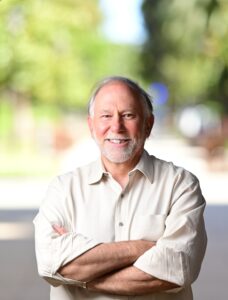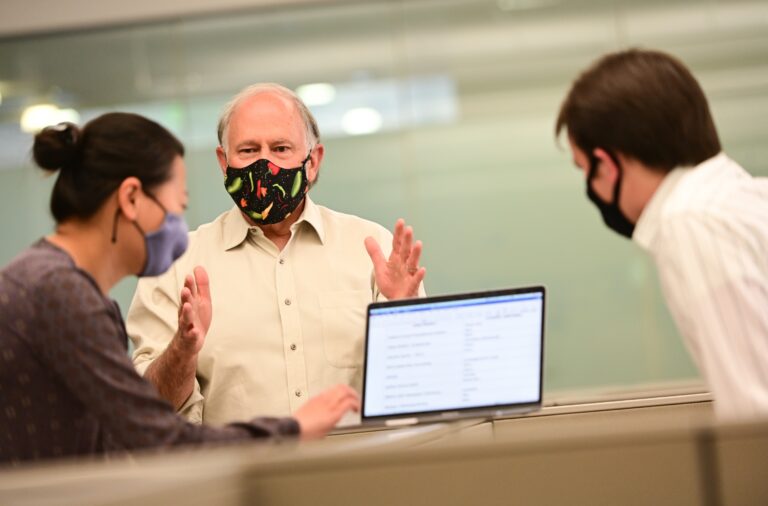Stanford Law School Launches New GitHub Developer Rights Fellowship
Fellowship will support independent legal resources for DMCA cases and policies

July 27, 2021 — Stanford, CA — Stanford Law School (SLS) today announced the launch of the new GitHub Developer Rights Fellowship as part of GitHub’s Developer Defense Fund. The fellowship will help provide independent legal assistance for individual software developers in appropriate cases and support research on and education and advocacy for the Digital Millennium Copyright Act (DMCA) and other legal issues, with the goal of shaping a developer-friendly legal landscape. The two-year clinical fellowship will be housed within SLS’s Juelsgaard Intellectual Property & Innovation Clinic under the direction of Professor Phillip R. Malone.
“We’re excited to enhance the Juelsgaard Clinic’s mission of informing and empowering open-source developers and the important work they do,” said Malone. “GitHub’s generous support for this fellowship will help ensure fair and open software development under the law and will defend the rights of a community whose creativity and innovations benefit us all.”
Helping to Define the Tech Legal Landscape
One of the Juelsgaard Clinic’s core goals is to help shape intellectual property law and regulatory policies to promote increased innovation and creativity in technology by advocating on the behalf of innovators, entrepreneurs, and consumers. The GitHub Developer Rights Fellow will work primarily on helping developers assess and respond to takedown notices under the DMCA, particularly those arising under DMCA Section 1201, which covers circumvention of technological protection measures.

Understanding and navigating the DMCA and takedowns is often complicated and difficult for open-source developers, and most developers don’t have the resources to push back against unwarranted takedown notices. The result is that developers often feel that they have no choice but to remove access to valuable code even where the legal claim behind a takedown notice is questionable or unfounded.
GitHub Developer Rights Fellowship
The new GitHub Developer Rights Fellow in the Stanford Juelsgaard Clinic will assist developers in knowing their rights under the DMCA and will provide independent legal expertise in appropriate cases to assert those rights. The Fellow, working with Professor Malone and clinic students, will review and handle appropriate DMCA notices and cases for developers from across the development ecosystem, including developers on GitHub. In addition to providing legal counsel where appropriate, the Fellow also will conduct research on and advocate for sound policies for and application of the DMCA, copyright law, and other legal issues important for software innovation. The Fellow will train students in the clinic and other lawyers on how to work with developers and advocate on behalf of open-source communities and projects. The Clinic’s activities, strengthened by the work of the Fellow, will encourage a developer-friendly legal landscape and balance the scales in areas of the law that are critical for the work of open-source developers.
The Juelsgaard Intellectual Property and Innovation Clinic is currently seeking to hire the first GitHub Developer Rights Fellow.
LEARN ABOUT THE FELLOWSHIP AND HOW TO APPLY
VIEW GITHUB’S BLOG POST
About the SLS Juelsgaard Intellectual Property and Innovation Clinic
The Juelsgaard Intellectual Property and Innovation Clinic is one of ten clinics in Stanford Law School’s Mills Legal Clinic, Students in the Juelsgaard Clinic engage in hands-on representation of clients in matters involving the DMCA, copyright, patent, trademark and other laws, and technology policy that affect innovation, including online speech and content moderation, artificial intelligence, technology and racial justice, net neutrality, antitrust, pharmaceutical regulation, privacy, cybersecurity, and more.
About Stanford Law School
Stanford Law School is one of the nation’s leading institutions for legal scholarship and education. Its alumni are among the most influential decision makers in law, politics, business, and high technology. Faculty members argue before the Supreme Court, testify before Congress, produce outstanding legal scholarship and empirical analysis, and contribute regularly to the nation’s press as legal and policy experts. Stanford Law School has established a model for legal education that provides rigorous interdisciplinary training, hands-on experience, global perspective and focus on public service, spearheading a movement for change.
